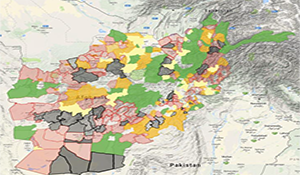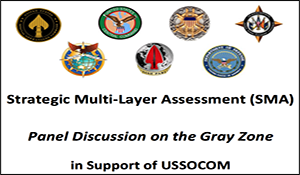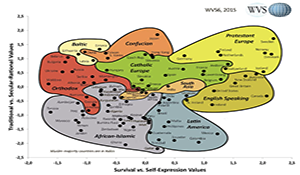Implications of Bad Outcomes in Yemen
Question (R4.11): What are the implications for the U.S. and GCC countries if the Arab coalition does not succeed or achieve an acceptable outcome in Yemen? Author | Editor: Aviles, W. (NSI, Inc.). Executive Summary Conflict in Yemen is now reaching the third year of its current incarnation, and despite the foreign intervention of GCC […]
Continue Reading
US Benefits to Supporting Afghanistan
Question (R4.10): Is the current U.S. approach to supporting Afghanistan beneficial? Or does it promote a cycle of dependency and counter-productive activities in the region? What strategic and local factors would need to be considered, managed and accepted in any significant change in military and/or other support? Author | Editor: Astorino-Courtois, A. (NSI, Inc.). Executive […]
Continue ReadingUS and Russia Interests in Middle East
Question (R4.7): What are the respective national interests of the US and Russia in the Middle East, and what are the options for alleviating US/Russian tensions to mutual satisfaction and improved regional stability? Author | Editor: Polansky (Pagano), S. (NSI, Inc.). Executive Summary The geopolitical foundation of the Middle East is undergoing a fundamental shift […]
Continue ReadingUS Foreign Policy as a Global Power
Question (R4.5): Does US foreign policy strike the right balance in supporting US interests and its role as a global power? Or, should the US consider a more isolationist approach to foreign policy? What impact could an isolationist policy have on Middle East security and stability, balance of influence by regional and world actors, and […]
Continue ReadingTAB A – 4th Round Quick Look Questions
Question TAB A: 4th Round Quick Look Questions Author | Editor: SMA Program Office. SMA Round Four Questions How strong a factor is Iraqi nationalism in countering Iranian influence? How could DoD and DoS be better postured to address regional and world conflicts to ensure a whole of government approach to identify and synchronize lines […]
Continue Reading
Panel Discussion on the Gray Zone
Panel Discussion on the Gray Zone. Author | Editor: Popp, G., Canna, C., Bragg, B., Stevenson, J. & Kuznar, L. (NSI, Inc.). Overview At the request of the Commander, United States Special Operations Command (USSOCOM), the Strategic Multi-Layer Assessment (SMA) team initiated an effort, titled Gray Zone Conflicts-Challenges and Opportunities-A Multi-Agency Deep Dive Assessment, focused […]
Continue Reading
Role of Human Geography, Culture and Language
The Key Role of Human Geography, Culture and Language in Effective Communication. Author | Editor: Sutherlin, G. (Geographic Services, Inc.). Overview To begin with a truism, people in different places speak different languages; they belong to different cultures. This is not in dispute, but it remains a persistent operational challenge. Understanding other cultures well enough […]
Continue Reading
SMA Project Noor Programmatic Overview
Author | Editor: Popp, G. (NSI, Inc). This video is a brief overview of the Strategic Multi-Layer Assessment (SMA) team’s Project Noor effort in support of USCENTCOM. Over the past year, the SMA Reach Back Cell has produced a vast corpus of knowledge and insight in support of key USCENTCOM questions regarding Syria and […]
Continue Reading
Discussion with NPS Experts – May 2017
SMA Reachback Panel Discussion with Experts from Naval Postgraduate School – May 2017. Author | Editor: Nicole (Peterson) Omundson (NSI, Inc). On 11 May 2017, NPS convened a panel session and discuss areas related to the 4th round of CENTCOM Reach Back Cell Questions. The speakers are listed below, and their biographies are available in […]
Continue Reading
How Developments in Brain Science Afford Military Utility
Speaker: Giordano, J. (Georgetown University Medical Center) & DiEuliis, D. (National Defense University). Date: April 2017. The use of sarin gas in Syria and the nerve agent VX to assassinate Kim Jong-nam, and ongoing international efforts in dual-use brain science (such as those described in the accompanying papers) prompt renewed interest in the current […]
Continue Reading